2021 in Review: Capcom At Their Best
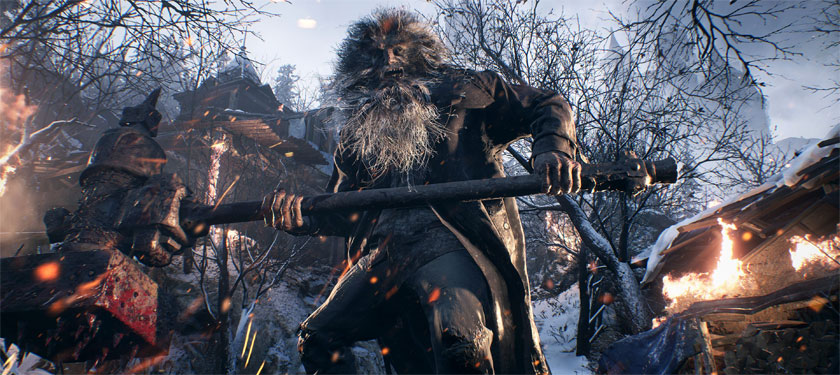
The seventh generation of consoles was unkind to a lot of seminal Japanese game developers. Be it the advent of HD gaming and its more expensive demand on visual fidelity, the sudden emergence of Western game developers onto the console scene and taking over, or Nintendo’s new focus on a non-gaming crowd, it was a time when many of the most prominent publishers and studios of the 90’s were left scrambling to maintain relevance, appeal to a Western audience, and abandon much of what had made them a success in the first place.
Approximately one decade ago Keiji Inafune’s detailed his belief as to why Japan had lost its seat at the head of the console gaming industry. I do not currently wholly agree with his sentiments regarding Japan’s “failures” against the rise of Western games, and Keiji Inafune himself would ruin his reputation among gamers due to the mismanagement of Mega Man spiritual successor Mighty No. 9. Nevertheless, many studios tried following some of Keiji’s advice in working with foreign studios or trying to transform their properties into an imitation of the new Western gaming demographic: a primarily younger group that had hopped aboard the hobby via Halo, Call of Duty 4: Modern Warfare, and Xbox Live.
Capcom is one of the most prominent examples of such attempts to appeal to the young new Western gamer. The reinvention of old icons such as Bionic Commando into a gruff, mean looking soldier with an edgy attitude and unnecessarily dark past; handing off new successes like Dead Rising to Western studios for sequels that failed to capture self-aware wackiness that the first wave of fans fell in love with; chasing co-op trends by forcing them into their Resident Evil franchise, in addition to spending unreasonable amounts of time and money on a nonsensical campaign filled with so much explosive noise but meager substance. There were still occasional gems such as Dragon’s Dogma being released under the publisher, but most players that discovered the studio on the NES, Super Nintendo, PlayStation, or even in the arcades were becoming increasingly disappointed, disenfranchised, and seemingly abandoned.
Somewhere around the turn of generations, however, as the Xbox 360 and PlayStation 3 sailed into the sunset and the Xbox One and PlayStation 4 were leaving port, Capcom had changed course. While I think it’s a simplification to blame outsourcing to foreign studios as the cause of Capcom’s losses, I do believe the shift back to internal development has forced Capcom to tighten their belts, refocus, and simply do what they do best. The release of Resident Evil VII in 2017 was effectively the start of a brand new era for the company, and now, four years later, I feel as if we’re seeing them truly hit their stride. It is possible that Capcom has never been as good as they are now.
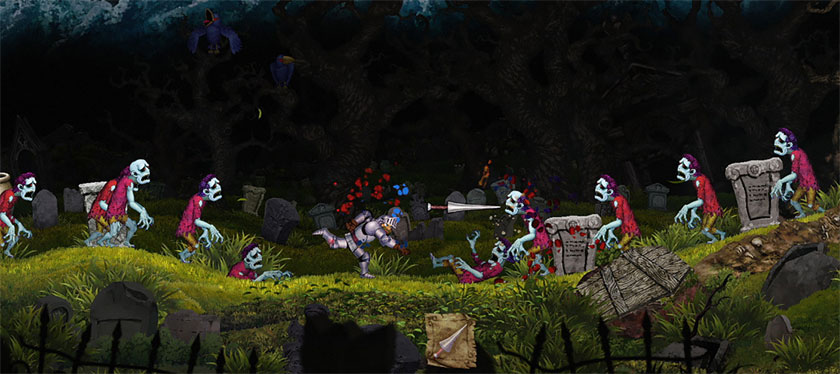
I know that’s a potentially controversial statement given how many franchises continue to lie dormant or dead, or to compare to the sheer volume of games the publisher used to release. There used to be years where multiple Mega Man entries would hit store shelves, yet the last time we saw the Blue Bomber was Mega Man 11’s launch in 2018. The last pulse detected in the Breath of Fire franchise corpse was a free-to-play mobile game whose reception was so poor it caused the title to shut down a year after launch. Alternate fighting game franchises such as Project Justice/Rival Schools and Darkstalkers haven’t seen new entries in well over a decade, their characters relegated to roster slots in the Marvel vs. Capcom franchise, as DLC for Street Fighter V, or cameos in cross-over titles like Project X Zone.
I think such a view of the past is beyond rose-tinted, however. Even during the 90’s Capcom was beginning to catch flack for just how rote their Mega Man releases had started to become and how many different variations of Street Fighter they were pushing out at once. They were still releasing a lot of diamonds, but there was a lot of rough to sift through due to Capcom grinding so many properties into overworn and overused dust. Nevertheless, it never stopped the company from introducing new franchises or taking a property and giving it a fresh new spin. Mega Man Battle Network for the GameBoy Advance was a clever combination of role-playing and action platformer mechanics whose narrative structure felt like a shounen anime that could fit right into your pocket. Resident Evil was a brand new PlayStation release that took the whole world by storm despite cheesy voice acting and low-budget, live-action cut-scenes. While it failed to become as successful in the West, the launch of Monster Hunter on the PlayStation 2 would begin a new cultural obsession for Japanese gamers that persists and burns brightest today.
2021 feels like the culmination of all of Capcom’s efforts to correct their course. Capcom Arcade Stadium and Ghosts ‘n’ Goblins Resurrection were likely their two smallest releases that would go unnoticed by most of the gaming audience, but were no doubt appreciated by fans of their old-fashioned library of challenging arcade hits. The first major release of the year, however, was Monster Hunter Rise, and in so many ways it is one of the largest successes any single company could have. Though it is currently only available for the Switch, it has dominated many streaming hours on the likes of YouTube and Twitch while proving to be an excellent jumping-on point for new fans.
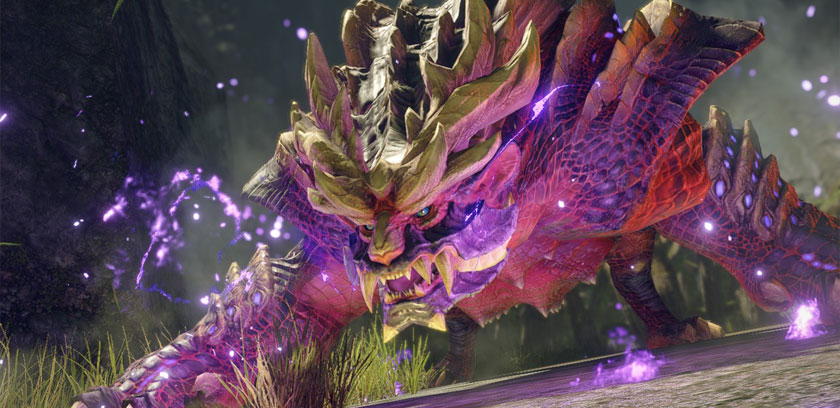
I myself have tried several times to write about my experiences with it, especially as I have now firmly dropped Destiny 2 from my regular gaming rotation. I tried without success to write my feelings out regarding the two, but it is an admittedly unfair comparison to make. Nevertheless, while each game relies on a “loot-driven” gameplay hook to keep players latched onto their fishing line, Monster Hunter Rise has no time-limited manipulation to try and coax players into regularly logging in and repeating mundane content. Any time I want, I can simply open the game, select a mission, and hunt a monster. Even if I have some high-powered gear equipped, there’s a chance my carelessness will get my butt knocked out and dragged back to camp on a cart.
What makes Monster Hunter Rise so satisfying is how specialized its mechanics are. Everything focuses on the hunt. Even leaping about the overworld to collect colorful birds is all in service of boosting one’s stats in preparation for the upcoming battle, and the addition of wire bugs has made navigating that world all the more engaging and fun. What makes Rise work so well is the amount of time spent focusing on what matters, eliminating the padding of prior games so that you can do what the box says: hunt monsters.
In the past, Destiny 2 was my game to play if I didn’t want to currently commit to something. It was perfect for when I was mentally exhausted and simply wanted to complete a few missions and enjoy some excellent combat mechanics. Now, however, that role instead fits Monster Hunter Rise while simultaneously doubling down as an easy game to just grab friends for in order to play. It is a perfect anytime game and, had I not run into some other highly replayable games this year, I’d have certainly jumped head first into more of Rise.
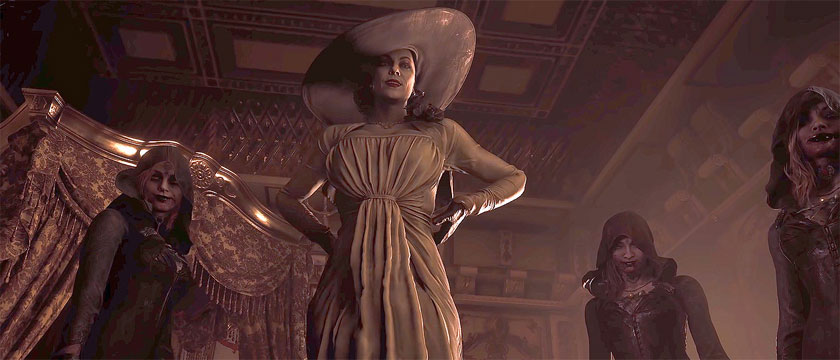
Resident Evil Village was the next big release of Capcom’s for the year, and it is one of those titles whose replayability was so strong that I’d consistently return to that instead of spending a bit more time in Rise or playing other new and incomplete games in my library. You may recall earlier this year that I showered Village with great amounts of praise, and that praise remains even after a fifth playthrough on the highest difficulty. This is my favorite entry in the entire Resident Evil franchise, surpassing even Resident Evil IV despite having far less effectively designed combat.
While I am concerned as to the narrative direction this game takes and its implications towards games after, Capcom has returned Resident Evil to its former glory days and, perhaps, even surpassed them. With Resident Evil VII we have a new and excellent take on horror; with Resident Evil 2 Remake we have the old-fashioned gameplay fused together into a polished interpretation of Resident Evil IV’s combat that perhaps surpasses all of the predecessors as a whole; and with Village, you have the mainstream success whose terror is more akin to amusement park thrills yet provides so many reasons to dive in and revisit over and over. Even if the worst deviation is the Resident Evil 3 Remake, it’s far from being as low as the lowest of the series. Nevertheless, I think Village truly is the best product of each of these in terms of content and gameplay variety.
The next release of the year was Monster Hunter Stories 2, a game that I have not yet had a chance to play myself. It looks like quite the major upgrade from the original 3DS game, and I have heard nothing but praise for it. Even the most lukewarm response is positive, and multiple online personalities I know to dislike most turn-based JRPGs found Stories 2 to be one of the best they had ever played. Sometimes such words can be red flags for those with a greater interest in the genre or preference for the more obscure, but as I have already stated, all I hear is praise. Even long-time turn-based RPG fans are pleased with how this title turned out.
I similarly did not play Capcom’s final release of the year, the VR version of Resident Evil 4. Curiously, it was a project outsourced to Armature Studios, a Western developer founded by former Retro Studios figureheads. Perhaps it was due to their experience working with Nintendo on the Metroid Prime franchise or their work with Keiji Inafune on ReCore that made it easier for them to work with Japanese developers, but Capcom broke their own rule regarding outsourcing to foreigners in order to build this project. Regardless, I am not interested in VR myself, and therefore know very little about this project or its reception. I certainly haven’t heard of it being bad, at least, and have already seen it win some “Best VR Game” awards.
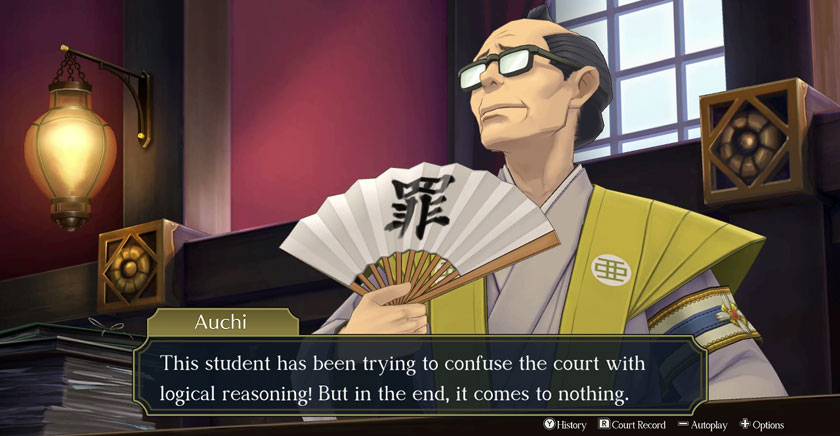
We finally come to The Great Ace Attorney Chronicles, the last release of Capcom’s I had purchased in 2021 and a title I continue to work through. I was a latecomer to the Ace Attorney franchise, one of the few titles that managed to steadily grow in popularity while Capcom was chasing Western tastes in the seventh generation. It has swiftly become one of my favorite franchises that Capcom has developed in recent years, and I was greatly excited to discover this previously Japan-only pair of games was being localized and launched globally.
It did not disappoint, though I hope to save most of my thoughts for a proper write-up later down the line. From a purely mechanical perspective, leaping back in time allowed the developers to wipe the gameplay slate clean of all the bloat Phoenix Wright had collected through six games. This “back-to-basics” approach would then allow them to develop new mechanics and direction that would uniquely apply to not only a different era, but a separate country. Protagonist Ryunosuke Naruhodo now tangles cases alongside detective Herlock Sholmes – no, that’s not a typo – in order to properly deduce motivation and uncover secrets through careful environmental observation during investigation. Court trials now put our hero at the mercy of an easily swayed and deeply biased jury as well, not just a judge.
This last adjustment is the most important, as The Great Ace Attorney Adventures – the first game in the bundled package – heavily explores themes of prejudice, subjectivity, and emotion interfering with the search for truth and justice. Be it racism, classicism, or the two mingling together, The Great Ace Attorney Adventures explores these potentially hazardous topics with panache and, most importantly, without hatred or condemnation. None of the characters are portrayed as two-dimensional evil-doers. Despite the often comedic and exaggerated presentation, the characters are instead handled as realistically and reasonably flawed. This is, perhaps, why I loved the game as much as I had. Such topics in a modern climate are a minefield, and yet The Great Ace Attorney navigates the landscape without throwing grenades of its own in order to “clear” the field of hazards. There is no soap box, nor is there condemnation.
I hope to write more on the games once I have finished the second, but again I have been reminded of just how excellent the writing of such visual novels and adventure games from Japan can be.
Which is why I wanted to dedicate a whole post to Capcom in particular. Though I only played around half of the games they released in a single year, none of their releases seem to be duds. If anything, each title they release comes off as being best-in-class. I have no doubt that their million-sellers list is front-loaded with recent releases in part due to their refocusing efforts back around 2013, producing fewer titles but of a high quality. With fewer releases competing for marketing dollars and spread out across the calendar year, emphasizing the long-tail rather than day one sales numbers, it becomes somewhat less difficult to turn a game into a hit.
As always, I cannot fully put my trust into a single developer anymore. I am jaded enough to always be waiting for the other shoe to drop, and that expectation is still present with Capcom. For the time being, however, I feel as if 2021 is the confirmation that Capcom is in a good spot right now, and it makes me hopeful to see what will come in the future.
An admittedly barebones looking future at the moment. There’s rumors abound of a sixth Street Fighter, a sequel to Dragon’s Dogma, and a remake of Resident Evil 4, but the only titles we absolutely know are in development are the now delayed Pragmata and upcoming expansion to Monster Hunter Rise. As such, the news I’m most eager to hear for in 2022 is what Capcom is working on. It may be with slight trepidation that we’ll see them slip back into old habits, but for now, they’re one of the few companies I feel more excited about than I am worried.
If there’s anyone that deserves accolades for best games released in a single year, it is, without a doubt in my mind, Capcom.


